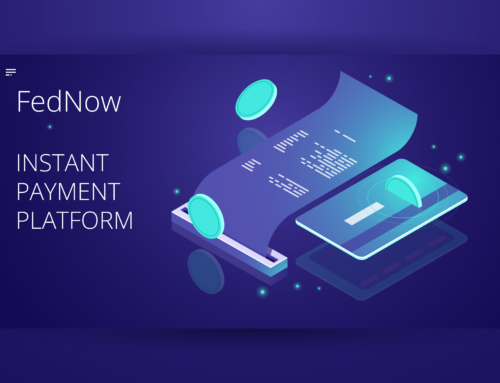The fintech sector is accelerating at an unprecedented rate, disrupting nearly every corner of the financial ecosystem, from retail banking and e-payments to insurance and stock trading. We explore the deeper aspects of how the fintechs are embracing automotive finance industries and its use cases here.
Fueled by a wide array of technologies such as AI, biometrics, RPA, big data, mobile applications, and smart contracts, fintech companies are not only making processes more efficient but also redesigning business models through inventive strategies. Currently, fintech unicorns are valued at over $187 billion, and global investors are injecting nearly $53 billion into fintech startups.
Across financial services, fintechs are driving transformation in various domains
Peer-to-peer (P2P) deposits & lending
With the advent of fintech, the lending landscape has undergone a profound transformation through peer-to-peer (P2P) lending platforms. They connect individuals and businesses seeking loans directly with investors, thus eliminating traditional intermediaries like banks. This streamlined approach has introduced transparency and speed to the lending process, resulting in a financial win-win for both parties due to increased returns on investments and accessible funding for borrowers.
Mobile payments
In an era of rapid digitization, the traditional banking structure has been revolutionized by the proliferation of digital payments. Advanced communication technologies have spurred the evolution of mobile payments, transforming P2P transfers with features such as mobile tapping, camera enabled QR codes, and voice banking. These swift, one-tap solutions are propelling us towards a digitized global economy, significantly impacting financial accessibility and convenience worldwide.
Robo advisory with wealth management
Emerging fintech solutions are revolutionizing the wealth management sector, offering sophisticated robo-advisory services. These AI-powered algorithms prompt clients to fill in a questionnaire about their financial goals, risk appetite, and investment horizon. Upon processing this data, the robo-advisors segment the client profiles and provide personalized financial roadmaps for a minimal fee. Further human consultation is also available. The automation of such tasks can lead to significant cost savings, as these tools can handle over 30% of traditional manual work while offering high personalization.
InsurTech
In the InsurTech space, the application process for insurance policies has been dramatically simplified by automation. The traditional need for agents and medical examinations has been eliminated, replaced by automated underwriting and fraud detection systems.
Personalized insurance premiums are now possible using telematics-based driving data, and claim processes have been expedited from weeks to mere minutes, greatly enhancing the customer experience. The digital-first approach has found traction among consumers, with many now preferring to purchase policies via online platforms.
Banking
The banking sector has been redefined by regulatory changes promoting open banking policies, enabling large banks to share customer data with third-party service providers. This openness has spawned neo banks and challenger banks – digital-first banking platforms. While neo banks leverage traditional banking infrastructure to provide quicker onboarding, deeper customer understanding, lower fees, and personalized banking services, challenger banks operate with a 100% digital approach, armed with their own banking licenses.
Cryptocurrency
Built on the secure foundation of blockchain technology, cryptocurrencies have introduced a new way to conduct transactions, making it practically impossible to counterfeit or double-spend. The facilitation of quick, cheap, and easy fund transfers has been a notable breakthrough. However, issues related to price volatility, cybersecurity, legal complexities, and regulatory concerns persist and need to be addressed for broader adoption.

Fintech use cases in automotive finance
As per McKinsey’s research, the automotive finance industry is ripe for a fintech-driven revolution. The cutting-edge innovations being introduced by fintech companies are reshaping the entire spectrum of lending within auto finance:
Sales & marketing
Digital-native buyers are keen to embark on their auto finance journey through intuitive and data-driven marketing tools, rather than traditional methods. With data analytics and mobile productivity tools, prospecting, lead generation, and referral mechanisms have become significantly more efficient.
Point of sale
Fintech automation has enabled AI/ML algorithms to generate pre-qualified loan offers at the point of sale, making the lending process more personalized, customer-friendly, and potentially increasing revenue for auto finance companies.
Credit underwriting
Automated underwriting has not only accelerated credit decision-making processes but also facilitated the use of alternative credit sourcing models. These models utilize data extensively to extend auto loans to traditionally underserved segments, reducing delinquency rates through comprehensive credit underwriting.
Automated document compliance
Fintech companies employ blockchain technologies and machine learning algorithms to automate document verification for regulatory compliance, significantly improving lending efficiency.
Customer servicing
Robotic Process Automation (RPA)-powered assistants provide seamless 24/7 customer service, enhancing customer engagement by efficiently managing queries and fulfilling requirements.
Delinquency management
Fintech companies leverage data analytics to address challenges such as poor vehicle loan recovery rates and high operational costs, enhancing features like data-driven delinquency prediction and automated collection management.
The path ahead for automotive finance companies
The fintech revolution is leaving no industry untouched, and businesses must adapt to survive. However, the pace of digital transformation is hampered by infrastructural and cultural hurdles. The two key go-to-market (GTM) strategies for financial institutions in the current scenario are seamless innovation and effective collaboration.
Financial institutions must also address challenges and risks related to data privacy, risk governance, business models, and regulatory differences across geographical boundaries. Fintech, with its blend of innovative technologies and modern approaches, can successfully navigate these challenges, particularly in legacy modernization.
As the automotive finance industry continues to navigate the road of disruption, the intersection of finance and technology promises exciting opportunities. It’s clear that the road ahead will be shaped by the fintech revolution, transforming the landscape of the auto finance industry and beyond.


